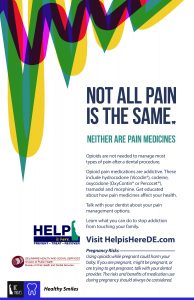Reminder for the week: Time to purchase your 2019 Delaware fishing license
DOVER – To achieve public compliance with laws and regulations through education and enforcement actions that help conserve Delaware’s fish and wildlife resources and ensure safe boating and public safety, DNREC’s Fish & Wildlife Natural Resources Police officers between March 18-24 made 1,037 contacts with hunters, anglers, boaters, and the general public, issuing 48 citations. Officers responded to 34 complaints regarding possible violations of laws and regulations or requests to assist the public. A Fish & Wildlife Natural Resources Police presence continued at the C&D Canal Conservation Area and Michael N. Castle Trail.
Fish & Wildlife Natural Resources Police Actions
Citations issued by category, with the number of charges in parentheses, included:
Fisheries Conservation: Recreational: Unlicensed fishing (5), use of net in prohibited area within 300 feet of spillway (1), possession of river herring during closure (20), possession of undersize striped bass (1), snagging of game fish (2), and illegal method of take – shad (2).
Commercial: Illegal gill net marking (3) and no reflector marking on gill net (1).
Public Safety: Loaded firearm in a vehicle (1).
Other: Trespassing after hours on a state wildlife area (8)*, damage state property (1), dumping solid waste (1), driving off established roadway in state wildlife area (1)*, and unregistered motor vehicle (1).
*Includes citation(s) issued at the C&D Canal Conservation Area.
DNREC’s Division of Fish & Wildlife recognizes and thanks the majority of anglers, hunters, and boaters who comply with and support Delaware’s fishing, hunting, and boating laws and regulations. Citizens are encouraged to report fish, wildlife, and boating violations to the Delaware Fish & Wildlife Natural Resources Police by calling 302-739-4580 or through the DENRP Tip app on a smartphone, which can be downloaded free of charge by searching “DENRP Tip” via the Google Play Store or the iTunes App Store. Wildlife violations may also be reported anonymously to Operation Game Theft by calling 800-292-3030, going online to http://de.gov/ogt, or using the DENRP Tip app. Verizon customers can connect to Operation Game Theft directly by dialing #OGT.
Are you AWARE?
Fish & Wildlife Natural Resources Police remind anglers to purchase their 2019 Delaware fishing licenses. A valid fishing license is required for fishing, crabbing, and clamming in Delaware in both tidal and non-tidal waters.
A resident annual fishing license costs $8.50 for ages 16 through 64. Anglers under the age of 16 and residents age 65 and older are not required to purchase fishing licenses in Delaware. Some requirements differ for non-resident anglers. Exempt persons may purchase fishing licenses if they so choose to help support fisheries management in Delaware.
Recreational anglers 16 years and older fishing Delaware waters also are required to obtain a Delaware Fisherman Information Network (FIN) number, which is generated automatically on all individual fishing licenses sold through Delaware’s electronic licensing system. License-exempt anglers, including Delaware residents 65 and older, non-resident boat fishing license holders who do not have an individual license, and individuals who do not have an individual license fishing on boats covered by a boat fishing license must obtain their free FIN number by visiting www.delaware-fin.com or calling 800-432-9228 toll-free.
Delaware fishing licenses are sold online, at the licensing desk in DNREC’s Richardson & Robbins Building, 89 Kings Highway, Dover, and by license agents statewide. To find a participating agent, or to purchase a license online, visit Delaware Licenses. For additional information on Delaware fishing licenses, call 302-739-9918.
For more information on fishing in Delaware, click on 2019 Delaware Fishing Guide. The guide also is available in printed form at DNREC’s Dover licensing desk and from license agents throughout the state.
Follow Fish & Wildlife Natural Resources Police on Facebook, https://www.facebook.com/DEFWNRPolice/.
Follow Fish & Wildlife Natural Resources Police on Twitter, https://twitter.com/DE_FW_NRPolice.
Contact: Lt. John McDerby, 302-354-1386, or Fish & Wildlife Natural Resources Police, 302-739-9913
